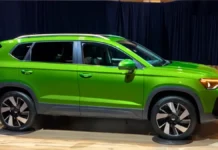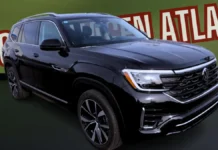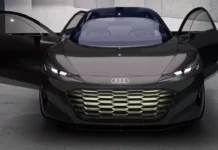Table of contents
Buy or Lease
Buying vs leasing is a critical financial decision that impacts your budget short-term and long-term. Whether you’re eyeing a sleek sedan like the Toyota Camry, a rugged Ford F-150, or even commercial equipment, this choice hinges on balancing upfront costs, monthly payments, and future flexibility. But how do you know which path aligns with your financial goals? Is leasing cheaper than buying? Let’s break it down.
For many, leasing feels tempting with its lower initial outlay and the allure of driving a new vehicle every few years. On the flip side, buying offers the promise of ownership equity and freedom from mileage limits. Yet, hidden factors like depreciation value, credit score impact, and cash flow management can tip the scales. In this guide, we’ll unpack the key differences between buying and leasing, spotlight real-world examples (think Honda Financial Services terms and Ford financing deals), and equip you to make a budget-smart choice. Let’s dive in.
Buy vs Lease: Key Differences Explained
Upfront Costs
When weighing buying vs leasing, your wallet’s first hurdle is upfront expenses. Buying typically requires a hefty down payment (often 10–20% of the purchase price), while leasing swaps this for a smaller security deposit (sometimes as low as $0). For example, a Toyota Camry lease deal might ask for $2,000 upfront, whereas financing a Ford F-150 could demand $5,000 down.
But don’t let lower upfront costs fool you. Leasing may free up cash flow initially, but it often lacks the long-term payoff of equity buildup. Plus, your credit score impact plays a role: leasing companies may demand higher scores for approval. Let’s say your credit is solid—leasing could offer short-term relief, but buying builds lasting value.
Monthly Payments
Here’s where leasing shines: monthly payments are usually 30–60% lower than loan payments for the same asset. Why? When you lease, you’re only paying for the vehicle’s depreciation value during your term, not the full price. For instance, Honda Financial Services might offer a $300/month lease on a Civic, while buying the same car with a loan could cost $450/month.
However, lower payments come with trade-offs. Leasing’s “rental” model means you’ll never own the asset outright, and those savings vanish if you lease repeatedly. Meanwhile, buying spreads the cost over a loan term, with each payment inching you closer to ownership.
Long-Term Ownership vs Flexibility
The buy vs lease debate boils down to priorities: Do you crave stability or flexibility?
- Buying builds equity. Imagine purchasing a Toyota Tacoma—after five years, you own a truck with resale value (even after depreciation). You’re also free to customize it, rack up miles, or sell it anytime.
- Leasing offers upgrade ease. Drive a new BMW 3 Series every three years, always under warranty. But you’ll face mileage caps (often 10,000–12,000 miles/year) and fees for excess wear.
Consider the total cost of ownership, too. Buying means covering maintenance post-warranty, while leasing often includes repairs. Yet, over a decade, buying usually wins financially—if you keep the asset long enough to offset depreciation.
How Your Budget Impacts the Buy or Lease Decision
Short-Term Budget Constraints
If your budget is tight today, leasing often feels like a lifeline. With affordable leasing options, you can drive a high-end vehicle without draining your savings. Take Tesla’s $399/month Model 3 lease, for example—this deal lets you access cutting-edge electric tech for less than many car loans. Leasing minimizes upfront costs (no hefty down payment!) and locks in predictable monthly payments, freeing up cash for emergencies or investments.
However, leasing isn’t a one-size-fits-all fix. While it eases short-term strain, you’ll need to weigh the long-term trade-offs: no equity, mileage limits, and perpetual payments. Think of it as a financial “subscription” model—ideal for temporary needs but risky if used indefinitely.
Long-Term Financial Goals
Buying, on the other hand, aligns with future financial goals that prioritize stability and growth. When you purchase a home, for instance, every mortgage payment builds equity—a tangible asset that appreciates over time. The same logic applies to vehicles or equipment: owning a Jeep Wrangler outright means you can modify it, sell it, or drive it into the ground without penalties.
Over a decade, buying often costs less than leasing repeatedly. For example, a $30,000 car loan might total $35,000 with interest, while leasing the same car three times could exceed $40,000—with nothing to show for it. If your goal is wealth-building, buying is usually the smarter play.
Hidden Costs to Watch
Both paths have financial pitfalls that aren’t always obvious:
- Leasing: Termination fees (up to $500+) for ending a lease early, excess mileage charges ($0.25/mile), and wear-and-tear costs.
- Buying: Maintenance spikes post-warranty. According to AAA’s maintenance cost estimates, the average car owner spends $9,000+ on repairs over 10 years.
Pro tip: Crunch the numbers beyond the sticker price. A lease’s low monthly payment might hide long-term expenses, while buying’s upfront cost could save you thousands down the road.
Pros and Cons of Buying vs Leasing
Pros of Buying
The financial benefits of buying are hard to ignore:
- Ownership Equity: Every payment on a Ford F-150 loan builds equity you can leverage later.
- Customization Freedom: Modify your Jeep Wrangler with lifts, tires, or tech upgrades—no lease restrictions.
- No Mileage Anxiety: Drive 20,000 miles a year? Buying avoids costly overage fees.
For long-term users, buying is a wealth-building tool. As Kelley Blue Book notes, well-maintained trucks like the Toyota Tacoma retain up to 60% of their value after five years.
Pros of Leasing
Leasing caters to those who value flexibility and convenience:
- Lower Payments: A BMW 330i lease might cost $499/month vs. $699 for a loan.
- Warranty Coverage: Most leases align with factory warranties, so repairs (like a Hyundai’s 10-year powertrain coverage) are free.
- Tax Perks for Businesses: Write off lease payments as operating expenses (check IRS Section 179 for details).
Leasing is perfect for tech enthusiasts or businesses needing up-to-date assets without long-term ties.
Cons of Each
Neither option is flawless:
- Leasing: Mileage limits (typically 10k–12k/year) and no ownership. Break the rules, and you’ll pay.
- Buying: Depreciation hits hard early on. Per Kelley Blue Book, new cars lose 20% of their value in Year 1.
For example, leasing a Chevy Silverado avoids depreciation worries but locks you into a cycle of payments. Buying a Honda Accord means swallowing early value loss but gaining eventual payment-free ownership.
When to Buy vs Lease: Scenarios to Consider
Lease If…
Leasing shines when you crave cutting-edge technology without long-term commitment. For instance, electric vehicles like the Chevy Bolt evolve rapidly—leasing lets you upgrade every 2–3 years to newer batteries, software, and safety features. It’s also ideal for businesses needing tax write-offs or drivers who prioritize low monthly payments.
But what happens at the end of a car lease? You’ll typically have three options: return the vehicle (watch for wear-and-tear fees!), buy it at a predetermined “residual value,” or lease a newer model. For tech enthusiasts, this flexibility is golden.
Buy If…
Ownership is king if you’re a high-mileage driver or value long-term savings. Take the Ram 1500: contractors and road-trippers who log 20,000+ miles annually avoid leasing’s strict mileage caps (and penalties up to $0.30/mile). Buying also pays off for safety-focused families—cars with top IIHS safety ratings, like the Subaru Outback, are worth holding long-term to maximize protection and resale value.
Plus, buying builds equity. After five years, a Toyota Highlander might still be worth 50% of its original price, while leased vehicles leave you empty-handed.
Hybrid Approach
Can’t decide? Explore lease-to-buy programs. Brands like Subaru offer “guaranteed future value” leases, where you pay lower monthly fees with the option to purchase the car at a fixed price later. This hybrid model blends leasing’s affordability with buying’s eventual ownership perks—ideal for budgeters who want flexibility.
Industry-Specific Insights
Automotive
The lease vs buy math varies by vehicle. For example:
- Toyota Corolla Lease: $249/month with $2,000 down offers short-term savings, but its high residual value (60% after 3 years) makes buying smarter for long-term owners.
- Hyundai Elantra Financing: A $22,000 loan builds equity faster, especially with Hyundai’s 10-year warranty.
Leasing suits luxury brands (e.g., BMW) with steep depreciation, while reliable models (e.g., Honda CR-V) reward buyers.
Real Estate
The rent vs buy debate mirrors car leasing. Use Zillow’s rent vs buy calculator to compare costs in your area. For instance, in markets like Austin, buying a $400,000 home could cost less monthly than renting a comparable property—especially with FHA loan requirements allowing 3.5% down for first-time buyers.
But in high-cost cities (e.g., San Francisco), renting often frees up cash for investments. The key? Factor in long-term appreciation and mortgage interest tax deductions.
Equipment/Technology
For industries like construction or IT, leasing vs. buying hinges on usage. Leasing a Caterpillar excavator ($4,000/month) avoids upfront costs ($250,000+ to buy) and includes maintenance—crucial for short-term projects. Conversely, buying makes sense for frequently used tools, like DeWalt site scanners, that hold value over time.
Tech companies also lease servers to stay current with AI advancements, while startups might buy essential gear outright to control costs.
Tools to Simplify Your Buy or Lease Decision
Lease vs Buy Calculator
Crunching numbers manually? Save time with a lease or buy calculator like the one from Edmunds. Here’s how it works: Input the vehicle’s price, lease terms (e.g., 36 months, 12,000 miles/year), and loan details. The tool instantly compares total costs, including interest, depreciation, and fees.
For example, plugging in a Honda CR-V EX ($33,000 MSRP):
- Leasing might total $14,000 over three years.
- Buying with a 5-year loan could cost $38,000 (including interest but factoring in resale value).
This data-driven approach reveals which option saves more for your specific situation.
Budget Planner Templates
Don’t wing it—organize your finances with free tools. Mint’s budget templates help track income, expenses, and lease/buy projections. Prefer spreadsheets? Download Excel’s car cost comparison sheet to model scenarios like:
- Leasing a Tesla Model Y vs financing a Toyota RAV4 Prime.
- Accounting for insurance spikes (e.g., luxury car premiums).
These templates turn vague guesses into actionable plans.
Total Cost Charts
Visual learners, rejoice! A 5-year cost chart comparing leasing vs buying a Honda CR-V might look like this:
| Expense | Leasing | Buying |
|---|---|---|
| Monthly Payment | $399 | $589 |
| Down Payment | $2,500 | $5,000 |
| Maintenance/Repairs | $0 (covered) | $4,200 |
| 5-Year Total | $26,440 | $40,340 |
Leasing saves $13,900 upfront but leaves you without equity. Charts like this spotlight trade-offs at a glance.
Answering Common Buy or Lease Questions
Does Leasing Hurt Your Credit Score?
Leasing can boost your credit—if you pay on time. Lenders run a hard inquiry during approval (a temporary 5–10 point dip), but consistent payments build positive history. However, missed payments hurt just like a loan. Pro tip: Keep credit utilization below 30% to minimize impacts.
Can You Negotiate a Lease?
Absolutely! Leasing isn’t a take-it-or-leave-it deal. Negotiate:
- Capitalized Cost: The vehicle’s price (lower = better payments).
- Mileage Caps: Push for 15,000 miles/year instead of 10,000.
- Money Factor: This is the lease’s interest rate—ask for a lower rate.
For example, a Jeep Grand Cherokee lease with a $45,000 MSRP might drop to $42,000 with savvy haggling.
Is Leasing Better for Business Taxes?
Often, yes. The IRS Section 179 deduction lets businesses write off lease payments for equipment or vehicles used >50% for work. For instance, leasing a Ford Transit van for deliveries could net thousands in annual tax savings. Consult a CPA to maximize benefits legally.
Whether you buy or lease depends on your budget and goals. Short-term savers might favor leasing a Chevy Bolt for its low payments, while long-term planners could buy a Ram 1500 to build equity. Use tools like Edmunds’ calculator and Mint templates to clarify costs, and always consult experts (e.g., a CPA for tax strategies). Armed with data, you’ll drive away with confidence—no regrets.


















